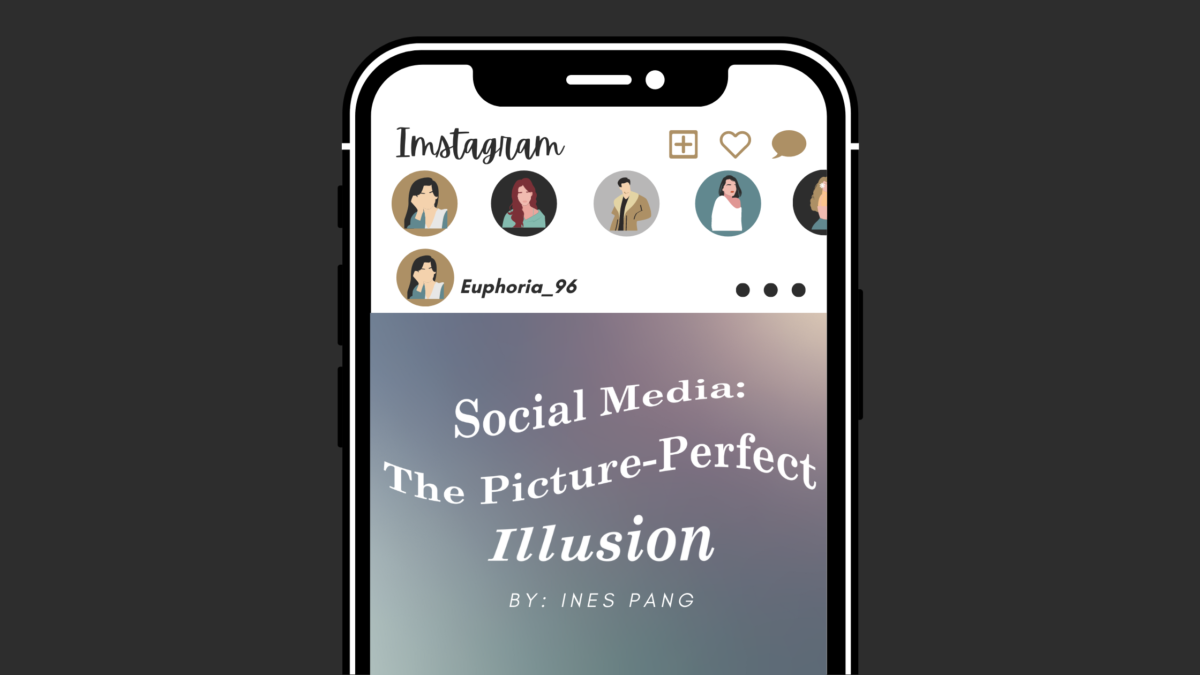The advent of social media has transformed many facets of people’s daily lives: socialising, dating, advertising, entertainment, and self-expression. Platforms like Instagram, TikTok, and Twitter have cemented themselves as cornerstones of popular culture. In fact, in this digital era, the human experience has become dangerously (and narcissistically) absorbed in social media—users have turned into spectators of not just other people’s lives, but also their own.
This process is termed social surveillance, through which individuals critically evaluate the content shared by their online peers, as well as scrutinise their own posts according to (their perception of) what others might think. Consequently, social media becomes a self-advertising platform for users to brand themselves the way they’d like to be seen by others. The instant gratification of receiving likes or mentions triggers the release of dopamine in their brains, rewarding them for partaking in a relentless cycle of competition and insecurity that gives rise to low self-esteem, anxiety, and depression.
As social creatures, humans are hardwired to seek social approval. In Festinger’s study (1954), he established the Social Comparison Theory, illuminating how the drive to evaluate oneself in relation to others is deeply rooted in human nature. Today, with the pervasiveness of social media, users are constantly privy to the experiences of others—or rather, only what is selectively shown—and this has made it habitual for us to form initial impressions of strangers or acquaintances by perusing their social media profiles, before getting to know them in person. I think social media has opened many avenues for creative expression, allowing us to showcase our style, “aesthetic”, sense of humour, and personality; but where do our virtual identities end, and where do we begin?
Ultimately, such practices make us more vulnerable to comparison, be it in terms of appearance, lifestyle, social status, or accomplishments. Studies have also shown that certain users may be more susceptible to the harmful effects of social comparison. For example, neurotic users are more likely to participate in self-disclosure, are more affected by others’ responses to their pictures, and engage in more passive consumption of social media.
Most prominently, social media promotes the harmful comparison of physical appearance. Platforms like Instagram, Tumblr, and Pinterest are filled with carefully curated or even digitally manipulated images, making it easy to hyper fixate on one’s flaws in contrast to airbrushed models and strategically posed pictures of attractive strangers. This instils the problematic desire to achieve unrealistic body standards, giving rise to the development of unhealthy relationships with food, body dysmorphia, and eating disorders.
For instance, you may have heard of Essena O’Neill, an Australian influencer who once made $2000AUD per promotional post to her 612,000 Instagram followers. Her social media career took a toll on her mental health as she began basing her self-worth on online validation, which she spoke out about in a YouTube video:
“I’ve spent most of my teenage life being addicted to social media, social approval, social status, and my physical appearance… I created a celebrity construct of myself, believing it would bring me happiness. That couldn’t be farther from the truth.”
Upon quitting social media in 2015, she edited the captions of her old photos to reveal the manipulation behind them, divulging that her perfect online persona is far from an accurate portrayal of real life. As captioned under one of her selfies: “Please like this photo. I put on makeup, a tight dress, big uncomfortable jewellery… Took over 50 shots until I got one I thought you might like, then I edited this one selfie for ages on several apps – just so I could feel some social approval from you. THERE IS NOTHING REAL ABOUT THIS.”
In addition, the perpetual influx of what is occurring in other people’s lives may also lead to the Fear of Missing Out (FOMO). This term was coined by researchers to refer to the feelings of inadequacy, anxiety, and irritation triggered by flashes of the exciting experiences selectively presented on social media by one’s online connections. It elicits the fear of regret and constantly generates doubt regarding the ways people should be living their lives, now that social media perpetuates a state of constant connectivity with those of others. Since social networking sites are filled with curated information, users tend to believe other people lead happier and more successful lives, and this evokes jealousy and reduces their self-esteem. Inevitably, ruminating on the mundanity of your every day to the exciting highs of someone else’s leads you to feel bad about who you are, and become less satisfied with your own life.
In response to this, a growing trend has been observed in “social media detoxing,” the phenomenon of taking a brief respite from social media platforms to safeguard one’s mental health. As a result, participants have reported a boost in mood, lower anxiety levels, and improved sleep. However, such endeavours do not persist for long, as efforts are often sabotaged by “FOMO”.
This is testament to how deeply ingrained social media has become in our daily lives. It is therefore important to be conscious of the ways this is taking a toll on our mental health and remember not to take the content we see at face value—especially in moments of mindless scrolling—and not to be afraid of unplugging from digital spaces when we feel the need to.


